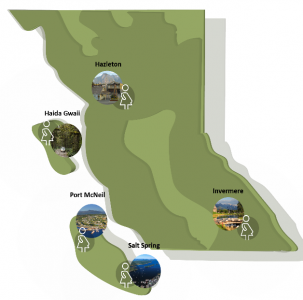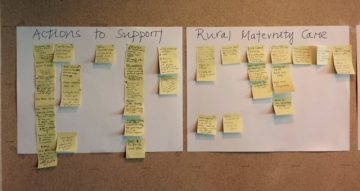Written by Lisa Hodgson, Research Assistant, 2nd Year Midwifery Student, UBC
July 2018
Our June 15th 1A Community Symposium acted as a catalyst for networking between the various 1A maternity sites’ health professionals. I had the privilege of sitting in with midwives from Invermere, Haida Gwaii, Salt Spring Island and Hazelton who came together to share their roles within their respective communities, the challenges they face and the unique and inventive solutions they have created to be able to continue to provide excellent care to women and families. Moreover, they used this time to encourage one another as well brainstorm solutions for long term sustainability.
“[At the moment] it’s a bit of a MacGyver situation – midwives should have funding that they know they can get.”
As a student midwife interested in rural maternity care, it was an exciting opportunity for me to be able to hear the passion and perseverance of the midwives who provide care in these communities. Midwifery is an integral part of sustaining rural maternity care and midwives providing care in low resource sites enable families to birth in their communities close to their family and friends. The midwives at the symposium echoed similar sentiments about the commitment they have to their communities as well as the unique challenges they face as the solo practitioners in low-resource, rural and remote communities.
Midwives in each community have come up with creative solutions and ‘work arounds’ that are helping them function in their community and keep birth closer to home. However, these solutions are often isolated, precarious, and unsustainable in the long term and create situations in which midwives must act as the martyrs of birth.
“Midwives fill in the gaps and try to operate under the radar but that creates an unsustainability that they are trying to work within. This shift needs to be made.”
From my perspective, it is clear that a more sustainable environment must be created for rural communities and the midwives that serve them. We need to incorporate long term solutions that will be available across the communities instead of one off solutions that leave midwives feeling vulnerable and isolated. Our rural midwives need support to continue to provide the best care possible for women and families across BC.
